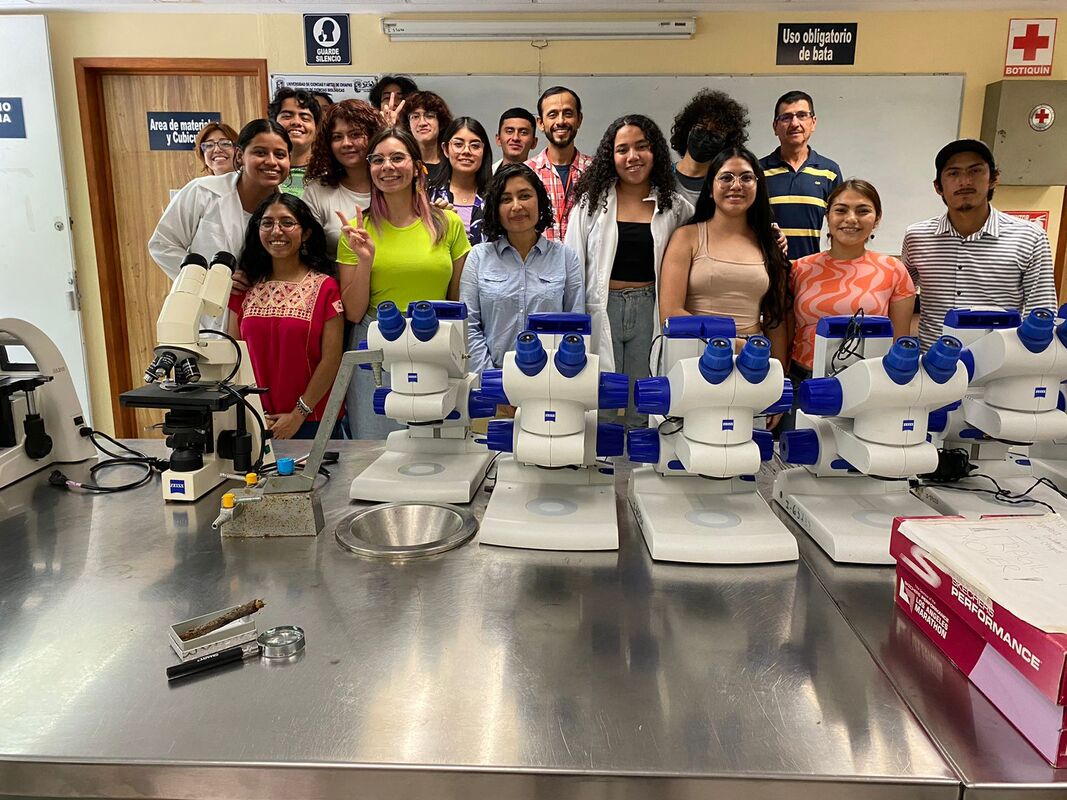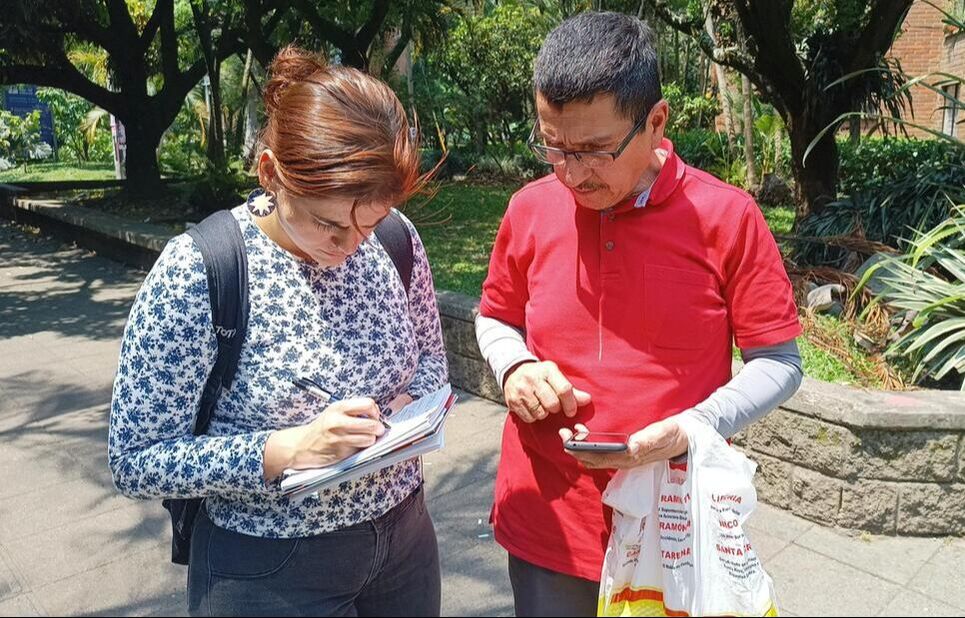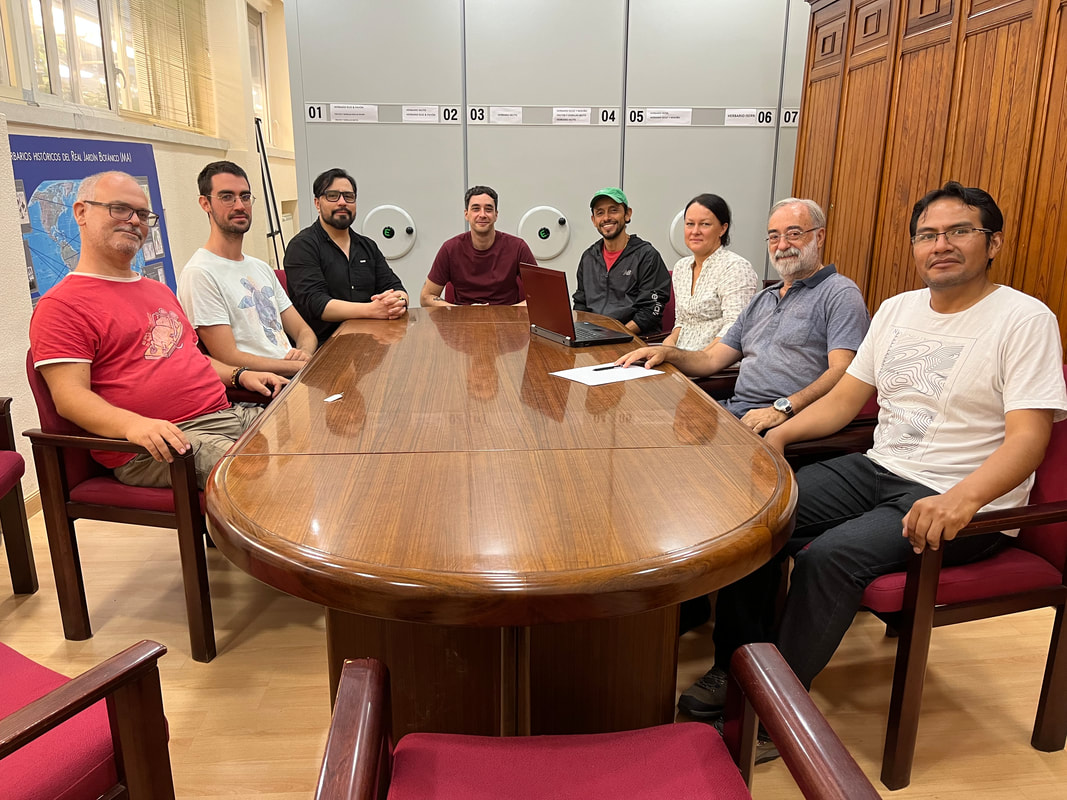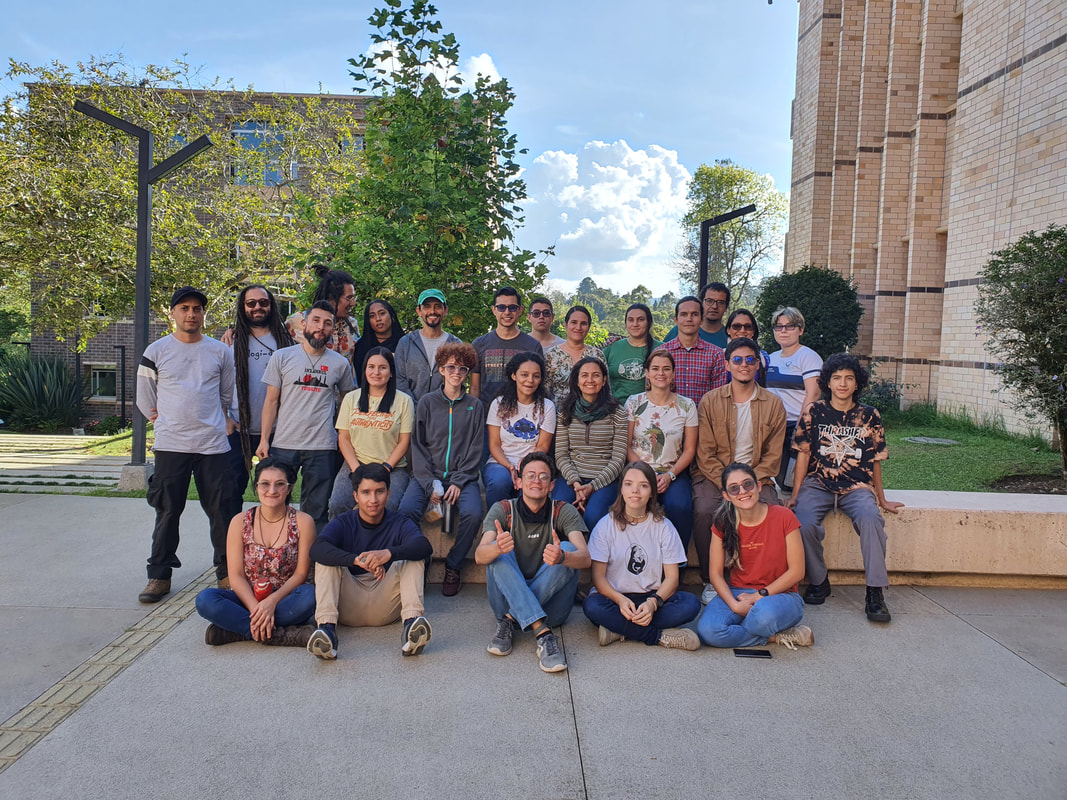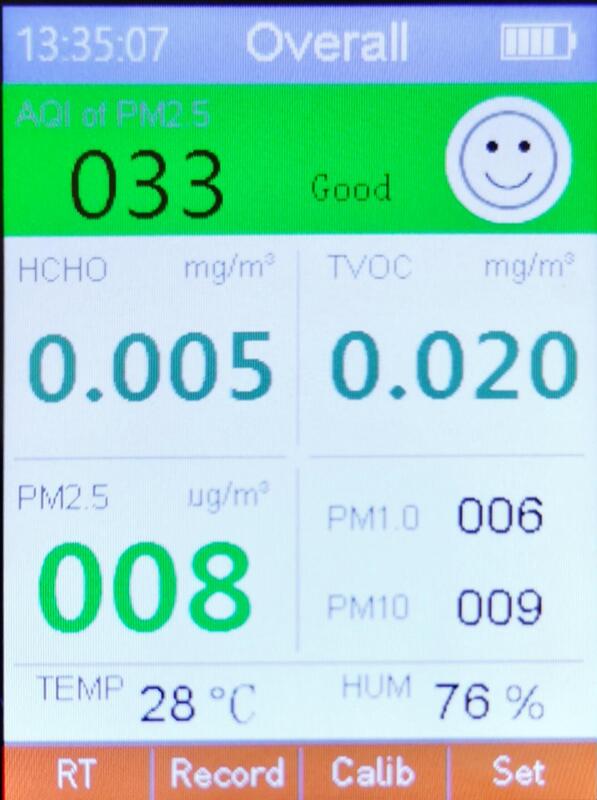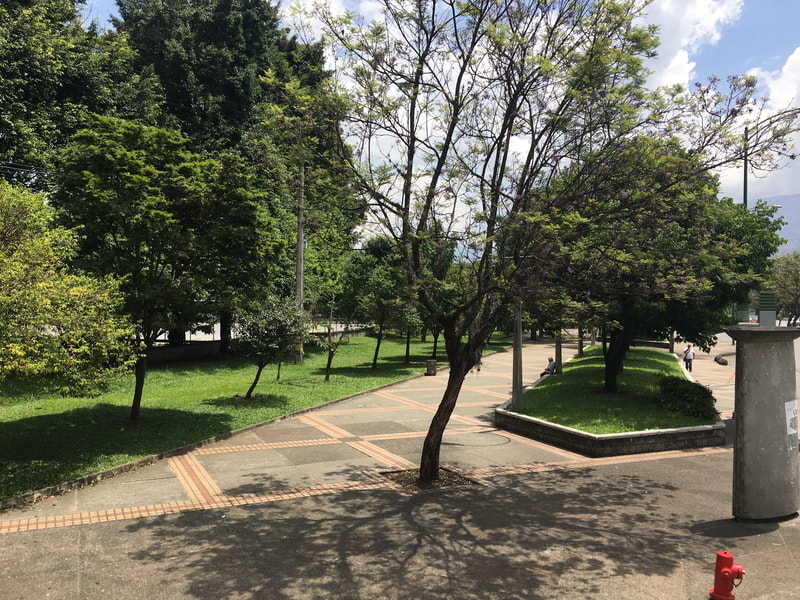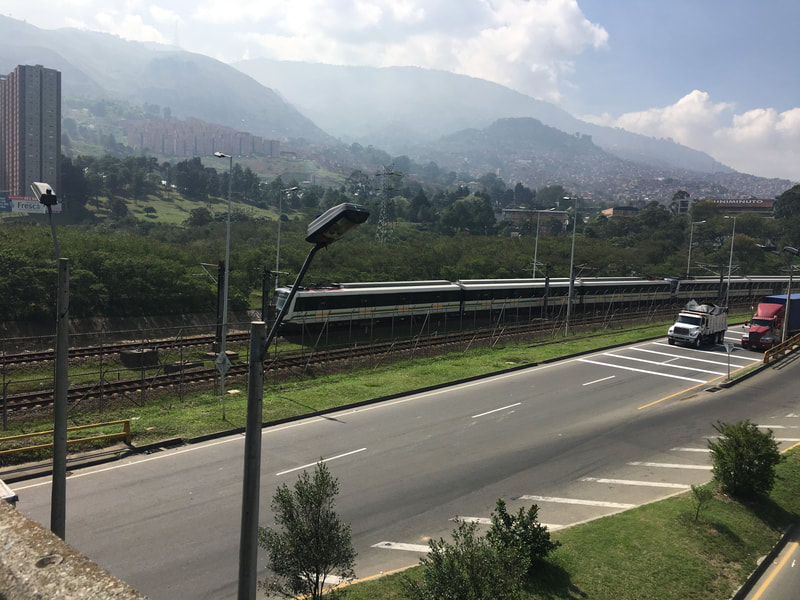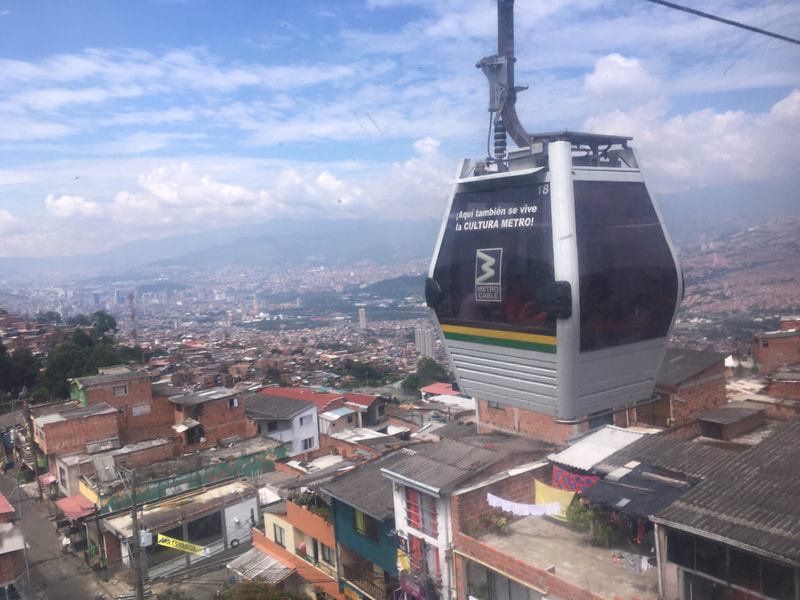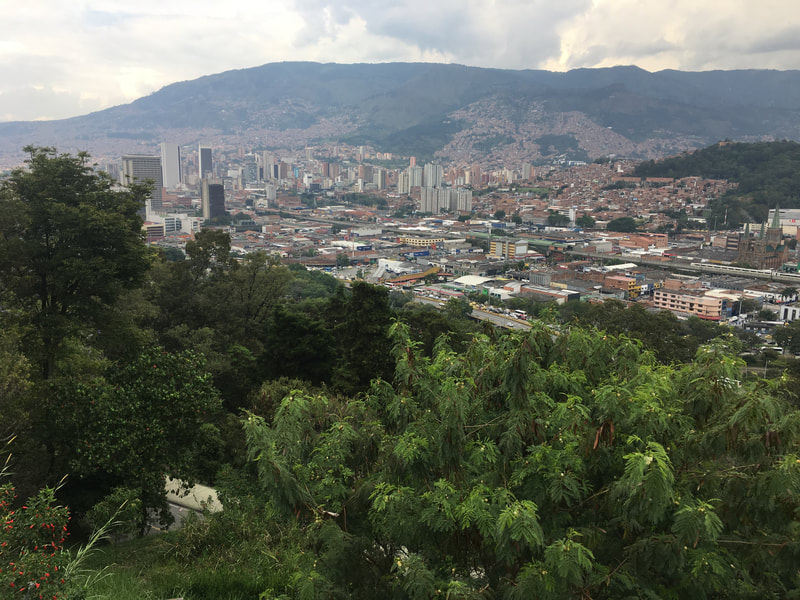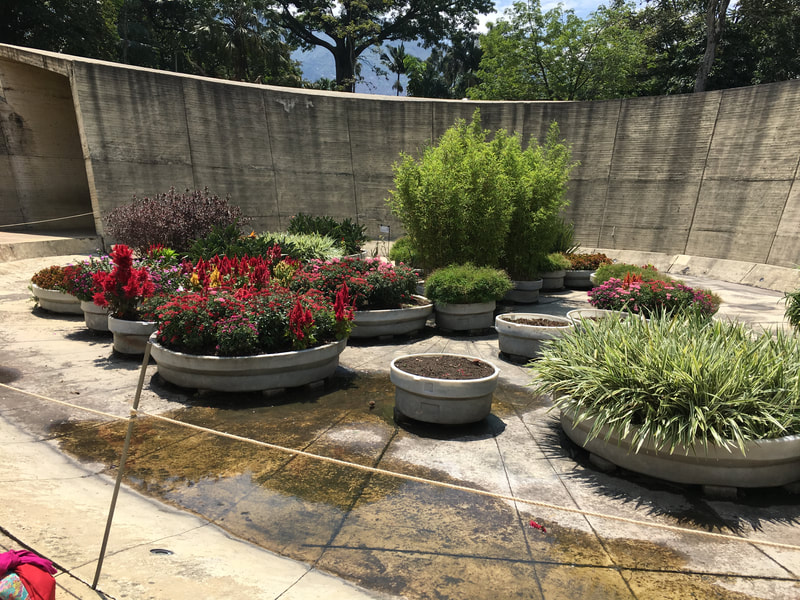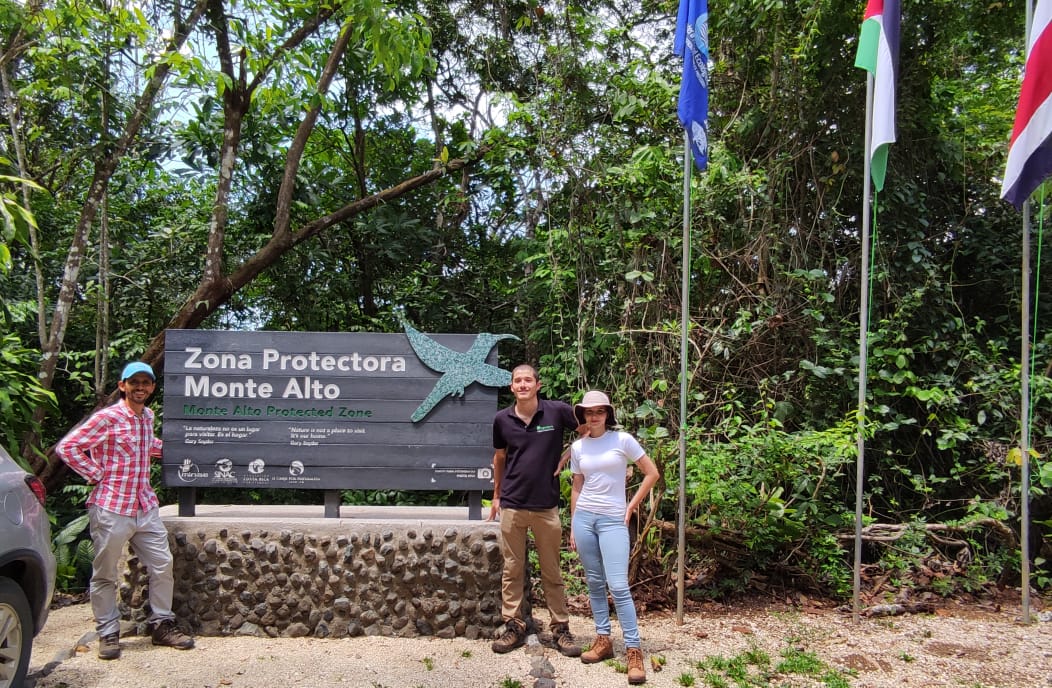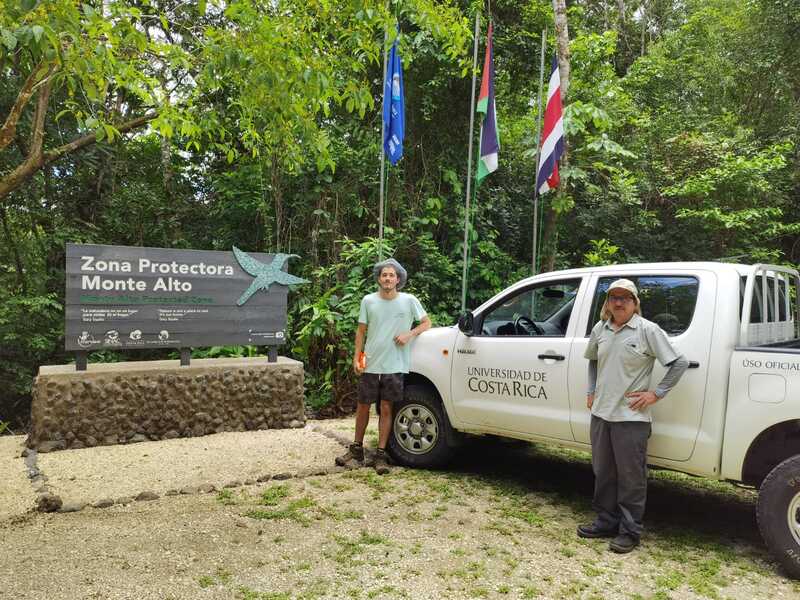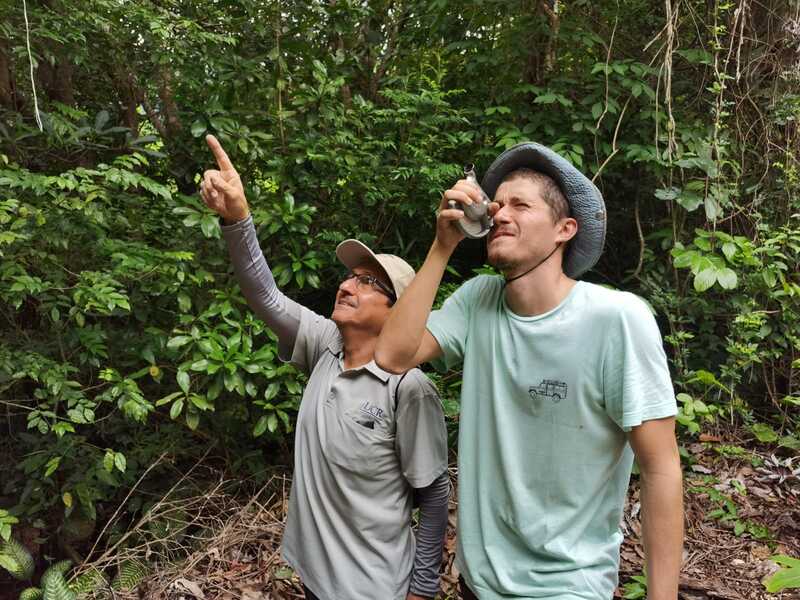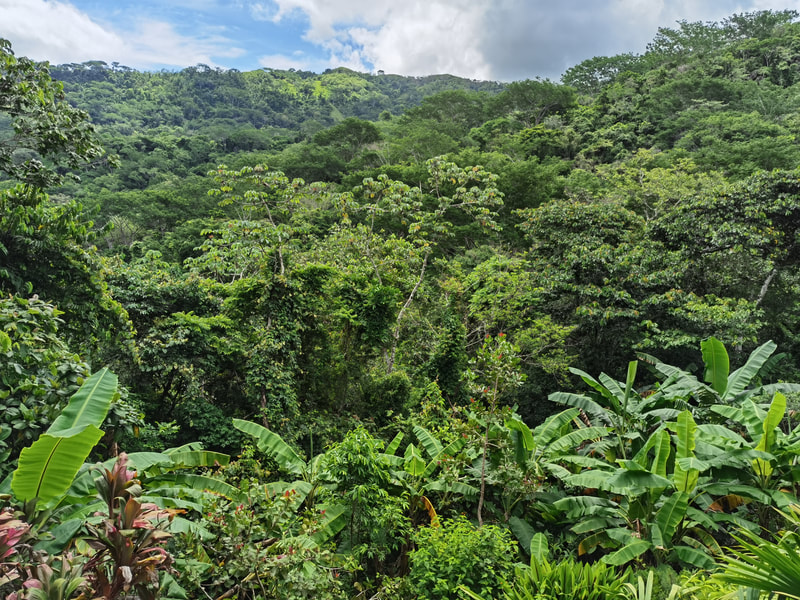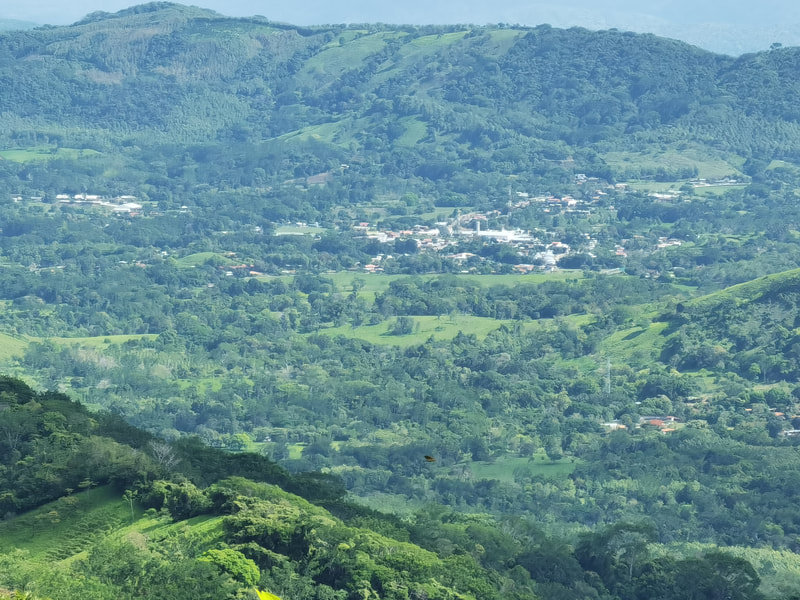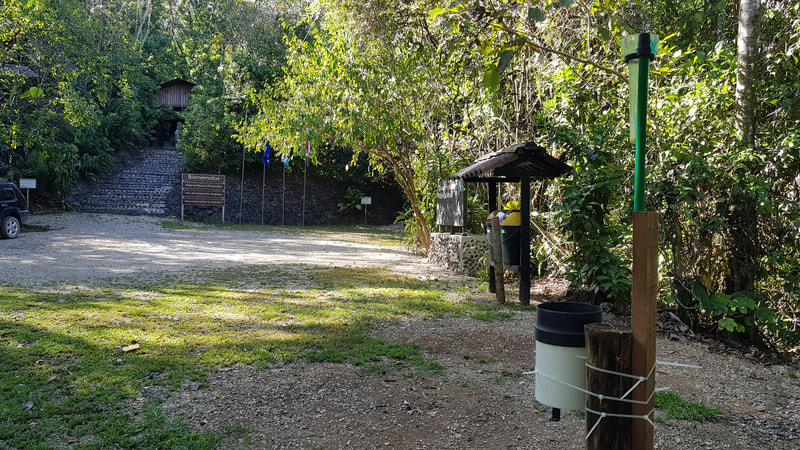For activities carried out during the 2013-2015 period, please visit this page
For activities during 2016, please visit this page
For activities during the 2017-2020 period, please visit this page
For activities during 2016, please visit this page
For activities during the 2017-2020 period, please visit this page
Potential myxomycete projects in Mesoamerica
|
A visit to the mexican state of Chiapas was made with the purpose of evaluating the feasibility of conducting myxomycete research in the northern section of the Neotropics. The visit took place in the Universidad de las Artes y las Ciencias de Chiapas (UNICACH) and also contemplated collaboration with mexican mycologists. A myxomycete workshop was conducted with local students in order to standardize scientific information. In addition, several conversations with both students and professors aimed at establishing long-term collaboration, which will likely take place in the future. In Central Mexico, the Universidad Autónoma de Tlaxcala was also visited to have meetings with graduate students and professors with which there is current collaboration.
February 2024 |
Spore trap deployment in Colombia
|
As part of the project intended to study the relationship of myxomycetes and air quality, a series of spore traps were installed in different locations within the Valle de Aburrá in Colombia. These traps will be collected back in April 2023 and used to set up moist chamber cultures for the evaluation of myxomycete colonization in urban environments. The collaboration of several faculty from the University of Antioquia made possible the deployment of the traps. Undergrad microbiology students had a chance to collaborate with this project and discuss with the group of researchers, the limitations and scientific extent of the design. In this manner, educational activities also took place.
February 2023 |
Myxotropic brainstorming in Madrid, Spain
|
During mid September, a series of meetings intended to discuss research lines, published research and future research interests on Myxomycetes and Arcellinida took place in the Real Jardín Botánico de Madrid, Spain. These dialogues were part of the closure activities of the VI phase of the Myxotropic Project and were inteded to develop synergies among participants. The most noticeable element of these meetings is that the Myxotropic team had not met during the last years due to the pandemia and had to "catch up" on recent information published by the different members of the team. During these conversations, the different researchers evaluated te future of the Myxotropic project and discussed potential ideas to develop in the coming year in the Neotropical region.
September 2022 |
Myxomycete workshop in Antioquia, Colombia
|
A myxomycete workshop was offered in the Seccional de Oriente of the University of Antioquia in El Carmen de Viboral, Antioquia. The workshop was attended by 24 people, including undergraduate and graduate as well as faculty members of the same university. Basic elements of the myxomycete biology such as life cycle, ecology and taxonomy were covered, but other more modern approaches such as biotechnology, engineering applications and biosprospection were also discussed. This workshop was complemented with a virtual conference that was recorded online for other students from Latin America to learn about myxomycetes.
July 2022 |
Air Quality Assessment in Valle de Aburrá, Colombia
|
As part of a project intended to study myxomycete distribution within urban ecosystems, a field trip to the Aburrá Valley was made in order to determine a series of air quality variables associated with particle distribution. If myxomycetes demonstrate to have a distribution associated with that of non-living particles, then they could be potentially used as biomonitors in urban ecosystems. During this trip all air quality variables were associated with those from a government-based system of air quality assessment as a strategy of cross-validaton.
June 2022 |
|
Ecosystem service quantification in Monte Alto - Guanacaste
|
After two years of not having much field activity due to institutional guidelines related to the pandemia, we started a project in the Monte Alto Nature Reserve in Guanacaste. During the next year we will quantify two important ecosystem services, carbon and water, with direct impact on the community of Hojancha. This initiative has been integrated with the efforts from the national system of conservation areas (SINAC), the local government (Municipality) and the community-based system of water provision (Asada).
April 2022 |
|
